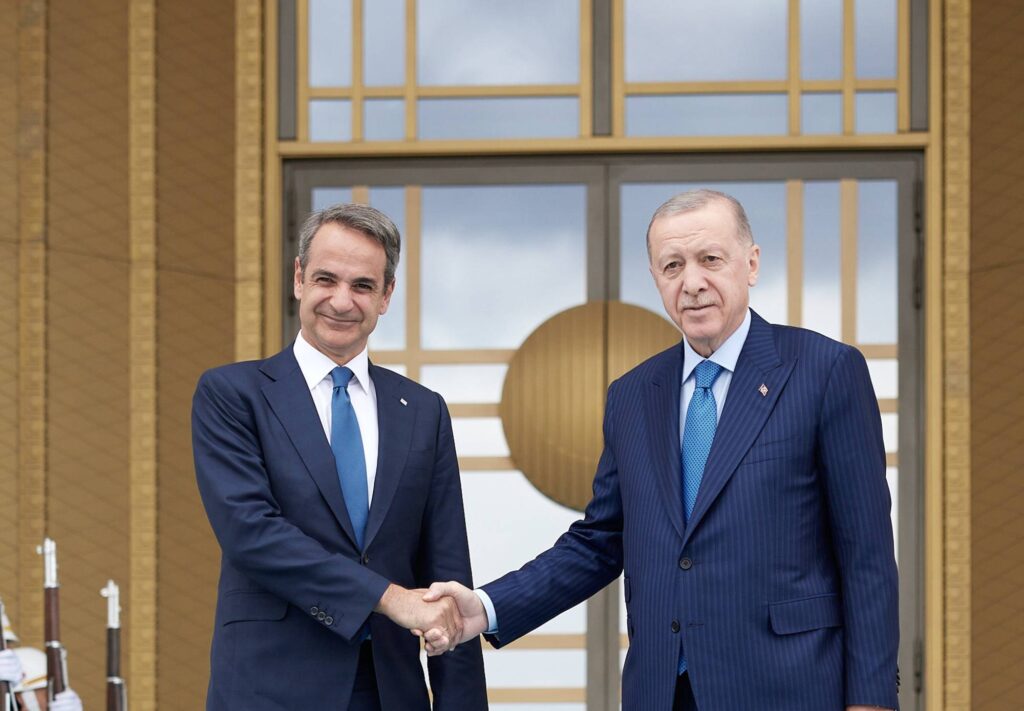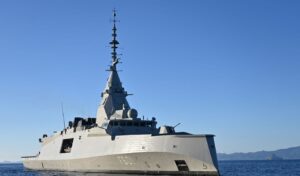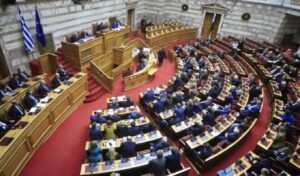In just a few hours, the two leaders of Greece and Turkey, Kyriakos Mitsotakis and Recep Tayyip Erdogan, are set to meet in New York, one year after their last encounter in the same city, in a highly anticipated meeting for both sides of the Aegean. The conditions under which these talks will be conducted, within the limited timeframe of half an hour, are not the best, considering the increasingly escalating tension in Greek-Turkish relations recently. Under this prism, expectations for the results it will bring are very low, as two international relations professors tell parapolitika.gr.
Read: Mitsotakis – Erdogan Meeting: Tuesday at 21:00 Greek time at the “House of Turkey” in New York
Expectations from the Mitsotakis – Erdogan meeting
According to international relations expert Kostas Ifantis, “high expectations are not justified. No kind of panic is justified, or in any case, that much hangs on this meeting. At this moment, there don’t seem to be the prerequisites for a major leap in the issues that lie at the heart of Greek-Turkish problems. It is a very useful, extremely useful discussion, but it would be a surprise if anything substantial emerges, beyond what has already been agreed upon in recent years.”
International relations expert Alexandros Despotopoulos reaches the same assessment, however, he points out that the results of these meetings will be seen in the future and what we essentially expect from the Mitsotakis – Erdogan meeting is for calm to return to relations between the two countries. “I think we cannot expect anything particularly significant. What I think we have as a priority, both us and I think our neighbors, is to lower the tension that has increased recently, so as to maintain some kind of calm in our region. The Turks will probably try to detect our intentions regarding the SAFE program that particularly interests them. For our part, we will want to defend our rights for the maritime blocks south of Crete, the Spatial Planning and the cable laying. More likely, I think, we will try to lower the temperature that has risen recently between the two countries and at the same time both sides will reformulate their positions. We don’t expect anything remarkable to come out of this meeting.”
Erdogan – Trump meeting more interesting
However, the Turkish President’s meeting with the American President is also awaited with interest as it may influence Greek-Turkish relations. According to Mr. Despotopoulos, the situation in American-Turkish relations will hardly satisfy the Turkish leader’s ambitions. “I don’t think it can dramatically change the balances. Turkey is currently giving everything to the United States, has made a huge order or promises to make a huge order to Boeing. Yesterday, it lifted some important tariffs to boost the promotion of American products within the Turkish market. It is making aggressive moves to win President Trump’s favor. But so far we haven’t seen anything in return. Consider that even the F-16s that supposedly were locked in, the purchase of 40 new F-16s and upgrade of the old ones, which supposedly was locked during Biden’s presidency, still hasn’t been pushed forward. Let alone talk about F-35s. It will probably make some significant commercial agreements, possibly achieve some kind of co-production of military weapons, but I think we won’t have a complete normalization of relations, meaning CAATSA sanctions in the US won’t be lifted in the immediate future.”
Gerapetritis’ trilateral meetings of geopolitical significance
Beyond the two important meetings mentioned above, significant geopolitical results for our country may possibly come from the trilateral meetings scheduled within the framework of the United Nations session, with Foreign Minister Giorgos Gerapetritis meeting with Cypriot Foreign Minister Constantinos Kombos and their counterparts from Syria, Egypt and Libya.
“The meetings with leaders from Egypt, Syria etc. are not at all ceremonial. We have various issues to discuss. First of all, with Egypt, we have the Sinai issue. We have a partial Exclusive Economic Zone delimitation that we want to complete. We have various energy interconnection issues we’re discussing. Also, Greece has played a very important role in Egypt’s access to European funds. Similarly with Syria, we have the issue of Christians there. And generally, in a broader sense of Hellenism, we want to ensure that Syria will not sign an Exclusive Economic Zone with Turkey illegally, bypassing Cyprus’s rights. We have serious issues with these countries. Like with Libya, for example. Our recent diplomatic activity, what did it bring? It brought the start of discussions at a technical level to delimit EEZ with teams from both countries. You might ask me, was the issue of the Turkish-Libyan Memorandum resolved? No. But having technical teams means that Libya recognizes that we need to delimit EEZ. That is, it recognizes that we have opposite coasts. The results of such moves cannot be measured immediately. We see them over time, but we are moving toward a direction where we solve issues or prevent issues. Let’s not expect anyone that in a few weeks we will delimit EEZ with Libya and Libya will throw away the Turkish-Libyan Memorandum. It is, however, the beginning of trying to completely dismantle it, which is illegal anyway, but to dismantle it with the Libyans’ consent. But we are not close to having results there quickly. We are, however, at the beginning of a positive process,” emphasizes Alexandros Despotopoulos.




